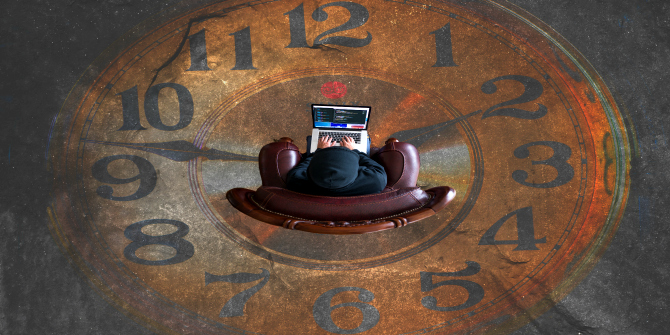 Last week, Julie Bayley spoke at the 2016 Research Impact Summit, hosted by Knowledge Translation Australia. During her presentation she discussed many of the challenges faced when introducing an impact agenda to the academic community, and how the concept of impact literacy can help. An extended version of the presentation has been made available online, but Julie outlines the key points below.
Last week, Julie Bayley spoke at the 2016 Research Impact Summit, hosted by Knowledge Translation Australia. During her presentation she discussed many of the challenges faced when introducing an impact agenda to the academic community, and how the concept of impact literacy can help. An extended version of the presentation has been made available online, but Julie outlines the key points below.
Consider impact. A small word. A simple, standard part of our vocabulary meaning influence or effect. But go from (small i) impact to (big I) Impact, and you’ve suddenly entered the domain of formal assessment and causal expectations. Arguably the UK has been the first to really take the Impact bull formally by the horns through the Research Excellence Framework 2014, but of course efforts to drive research into usable practice are far from unique to this little island. Whilst every country is rich with learning about how knowledge best mobilises within its own context, the UK probably offers a unique insight into the realities of impact assessment at scale and the multiple, non-prescribable pathways connecting research to effect.
 Image credit: Blueprints by Cameron Degella. This work is licensed under a CC BY 2.0 license.
Image credit: Blueprints by Cameron Degella. This work is licensed under a CC BY 2.0 license.
First principles: impact is the provable effects of research in the real world (see the second and third slides of the presentation). It’s the changes we can see (demonstrate, measure, capture) beyond academia (in society, economy, environment), which happen because of our studies (caused by, contributed to, attributable to). Dissemination, communication, engagement, knowledge transfer, knowledge exchange and knowledge mobilisation are all vital in getting research into practice, but in its truest form, ‘impact’ is the protected description of the resulting change.
Largely speaking, impact has three main drivers: funders (who increasingly require impact plans for research to be judged competitively); centralised assessment (e.g. the Research Excellence Framework, UK); and the individual academic’s commitment to social, economic or environmental change. Formal sector expectations such as the REF are a double-edged sword. On one side they legitimate engagement and outreach activities which can be disregarded in income/publication-focused environments. On the other, however, they can confer unrealistic expectations on those disciplinary areas (e.g. fundamental research) whose work does not naturally connect directly to ‘real world change’. Even where academics are personally committed to impact, the weight of complying with assessment rhetoric can corrode even the most impassioned resolve.
Impact offers challenges to academics and the institution alike. For the academic, weaving impact into already pressured environments can be exhausting, and the unease of meeting expectations for impacts that are ‘significant’ enough for external assessment can trigger anxiety and anger. For the institution, staffing, resourcing and embedding impact within existing structures whilst ensuring assessment requirements are met is extremely tough. Similarly we must remember and address the challenges for the beneficiaries themselves. The ‘users’ of our work are concerned with how well the research fits their needs, and how accessible and useful it is. Unless work is appropriate and suitable for the audience, it’s unlikely to achieve its impact aims and will just introduce more burden into the user community.
So how can we do impact well? After several years in impact I’ve enjoyed/burned my fingers on a considerable volume of training, planning/strategy building, designing information management systems and building impact into a university culture, alongside academic research in the area and (health psychology) research submitted to REF. It’s hard to disentangle the discrete elements of the impact process, which probably explains why I’ve had my fingers in quite so many pies. I have discussed the challenges still facing the impact community before, and how a reductionist, assessment-driven approach can lead to impact short-sightedness. However, academics have an amazing and very privileged opportunity to make a genuine and meaningful difference to the ‘real world’. For this, the research community needs to understand how to make impact happen. The research community needs to be impact literate.
Impact literacy (slide six; a term coined by Dr David Phipps, York University, Toronto, and me) describes individuals’ ability to understand, appraise and make decisions with regards to impact. Impact literacy involves understanding how the what (type, indicators and evidence of benefit), how (activities and engagement processes) and who (individuals’ skills and roles) of impact combine to produce effects. Impact literacy supports good decision-making, clear planning and realistic methodologies. Impact can be pursued without being literate, but this is likely to lead to poor execution, missed opportunities, poor resource use and misaligned or underachieved targets. A person is only literate if they understand each of the three areas. If one is missing, thinking is incomplete:
- How + Who (without What) gives poor consideration to endpoints/effects
- How + What (without Who) neglects the importance of individual efforts and skills
- Who + What (without How) overlooks the need for appropriate engagement methods
We can and should also extend literacy beyond the individual and build an impact literate research culture. With all the challenges to delivering impact within a pressured academic environment, it’s essential that institutions align their internal structures to supporting delivery. Bluntly put, you can only measure what you create, so start working together from the start. Academics need to build partnerships and translate research into suitable formats, whilst the institution values, resources and builds strategic connections beyond the institution (‘How’). Academics and research managers also need to recognise their own skills/training needs, and share/partner with others, whilst the institution must commit to professional development and clarifying roles (‘Who’). Academics must work with end-users to establish suitable goals and ways to measure them, whilst the institution must offer the strategic and systems support to manage this information (‘What’).

The process of building a positive and impact-literate culture is of course beyond the scope of one talk. It is an ongoing process and takes continued strategic and individual commitment. But if we really want impact, and good impact at that, we must focus on improving the knowledge, skills and confidence of academics and research managers across the institution. An impact literate culture is one in which people know what’s needed and how they contribute. A positive culture is one in which they know that contribution is valued.
So if you’re trying to build impact into your institution, my top tips would be:
- Embed impact into the research process. If you’re going to create real benefits, impact has to be integrated from the start and not treated as a post-project add-on.
- Recognise one size doesn’t fit all. Impact cannot be templated. It is always unique to the project, discipline and its place along the fundamental-to-applied continuum. Tailor your thinking.
- Harness and build skills within the institution. Create your ‘impact agency’ by developing impact literacy, competencies and connections between colleagues.
- Engage not enrage. Impact is a small word with big implications. Give people time to adjust and build a strong approach together.
Remember: impact is achievable. But it’s not simple. Value the people involved and their efforts, support the processes and connect researchers, users and research meaningfully. Just imagine what’s possible if you do.
This post originally appeared on the author’s personal blog and is reposted with permission.
Note: This article gives the views of the author, and not the position of the LSE Impact Blog, nor of the London School of Economics. Please review our comments policy if you have any concerns on posting a comment below.
About the author
Julie Bayley is a HCPC Registered Health Psychologist and applied researcher from Coventry University, specialising in behaviour change interventions and knowledge mobilisation. She has recently finished a secondment as Coventry University’s Impact Officer, based centrally to support impact strategy development, funding proposals and staff development. In 2015 Julie won the inaugural Association of Research Managers and Administrators (ARMA) Research Impact Award and currently co-leads ARMA’s Impact Special Interest Group. She is also a member and event lead for ARMA’s Training and Development Committee and sits on the European Association of Research Managers and Administrators (EARMA) Impact Working Group. Julie has now returned to an academic post and is currently developing models for impactful health psychology, undertaking a commissioned impact review for NIHR, and collaborating internationally on knowledge broker competencies and impact literacy.







Excellent principles – it would be good to see a case study to give an example of how the impact became visible.
Interesting article. But your definition of “impact” at the beginning of your essay – “A small word. A simple, standard part of our vocabulary meaning influence or effect.” – gives rise to another set of questions, that a sociolinguist might like to take up. This meaning of the word (in either its noun or verb form) is pretty recent. For most of its history, “impact” [noun] meant “the striking of one body against another; collision”; “impact’ [verb] meant “to press closely into or in something; to fix firmly in; to stamp or impress (on something).” The Short Oxford English Dictionary revised editions in the 1960s were still reporting these as the only meanings. I haven’t been able to locate the arrival of “impact” as an apparently more powerful and emphatic synonym for “influence or effect” or, in its verb form, “affect.” It somehow seems more direct, more purposeful but there is nothing in its etymology that would explain how it came to have this recent meaning. Can anyone help? It would be a good measure of your Impact and your Engagement if you could!
Thanks Alan – yes I agree there’s a fascinating linguistic perspective here. My definition was deliberately framed around the strategic requirements (REF etc) and how they shift impact to Impact and how the term then becomes so loaded.
Your reference to ‘collision’ is also fascinating. I think the sector has recognised that (i) impact is a blunt term for what is a far more nuanced set of influences and collaborative outcomes, and (ii) without careful management and engagement, we can easily end up with a ‘collision’ between academia and ‘the outside world’. I definitely welcome more interrogation of the language in impact territory.
It’s worth pointing out that the term “impact literacy” was first coined by James Harvey and was cited on this very blog in 2013: https://blogs.lse.ac.uk/impactofsocialsciences/2013/04/17/an-embedded-culture-of-research-impact/
It’s good to see this term is still in use, but I think you ought make an amendment to the your blog and acknowledge James for being ahead of the curve!
Andrew
Thanks Andrew – hadn’t seen that reference before, so many thanks for flagging. Certainly happy to acknowledge it; there’s such a wealth of expertise in the area the more ‘connecting the dots’ stuff we can do the better!